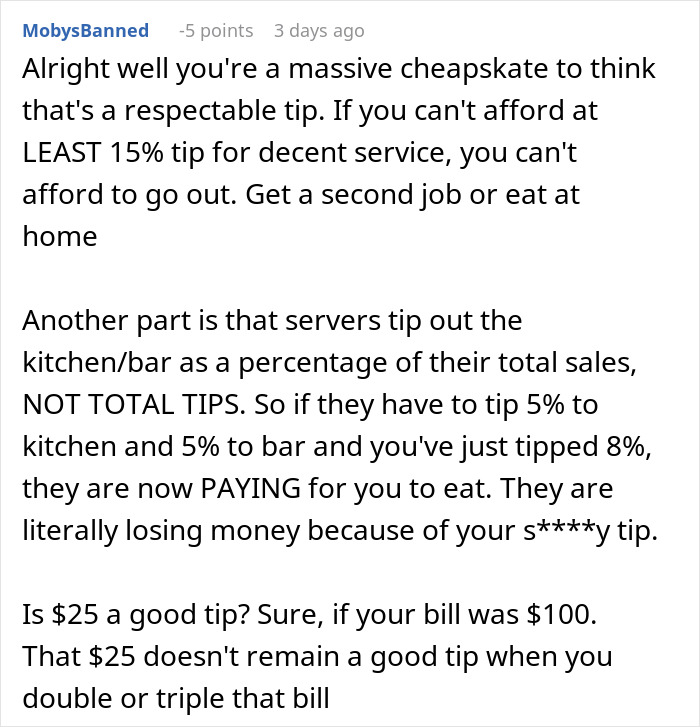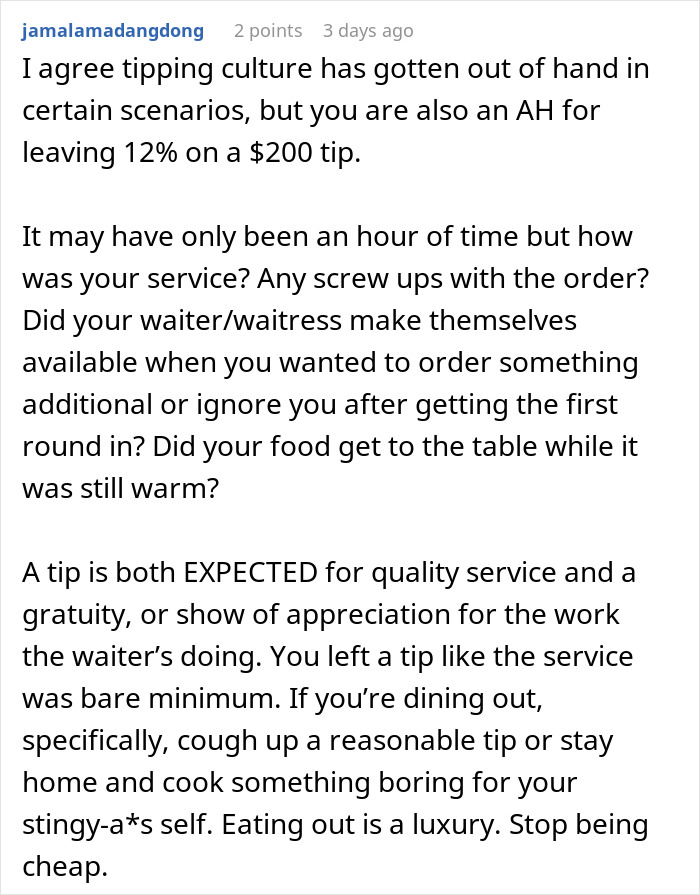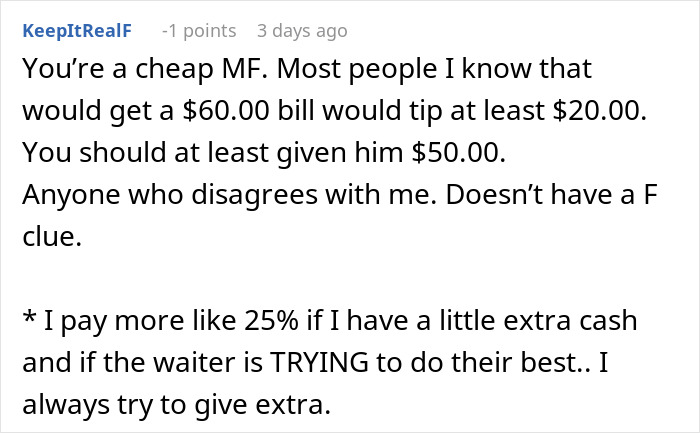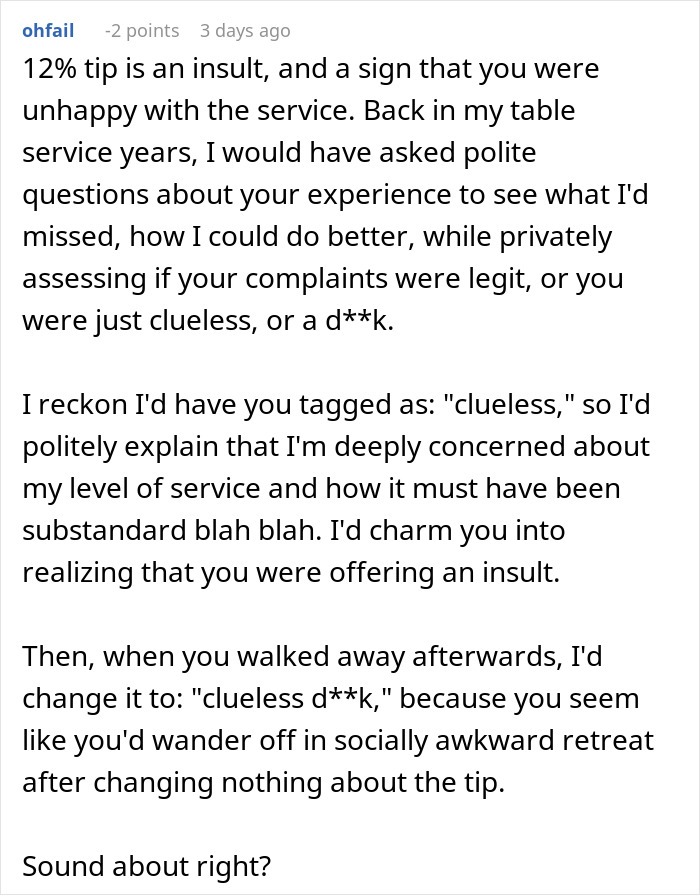Tipping culture can be very different depending on which part of the world you look at. In some places, like Japan, it is seen as unnecessary or even disrespectful, as excellent service is considered part of the job. In others, it’s expected.
But even there, Reddit user Koiguy94 believes there has to be a limit. In a recent post on r/stories, they described a visit to a restaurant that made them wonder at which point gratuity becomes extortion.
This person had a nice diner with their friends, and the gang paid almost $200 for it
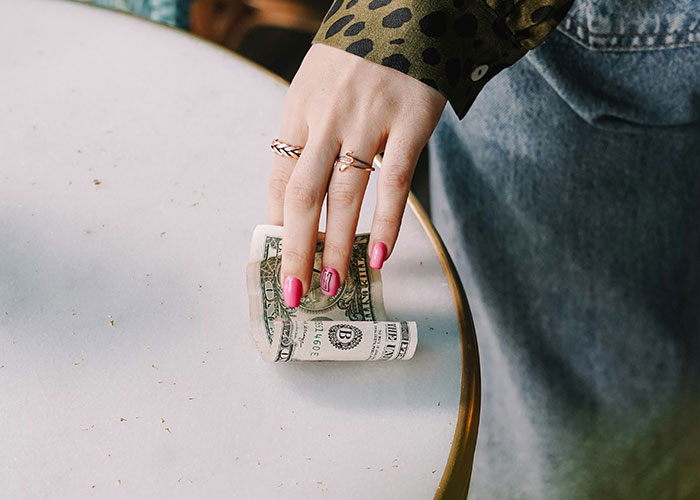
Image credits: Lala Azizli / unsplash (not the actual photo)
They left a $25 tip for the service, but the waiter refused it because it was too small of a tip
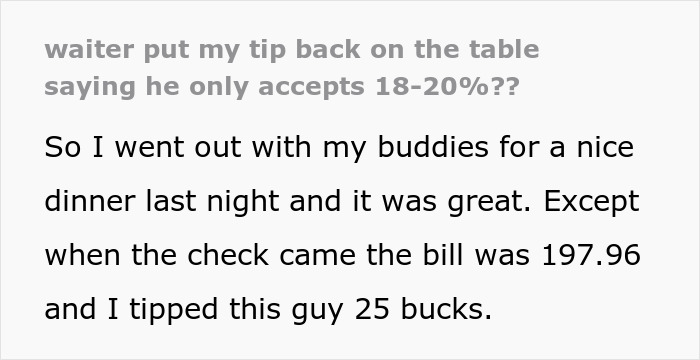
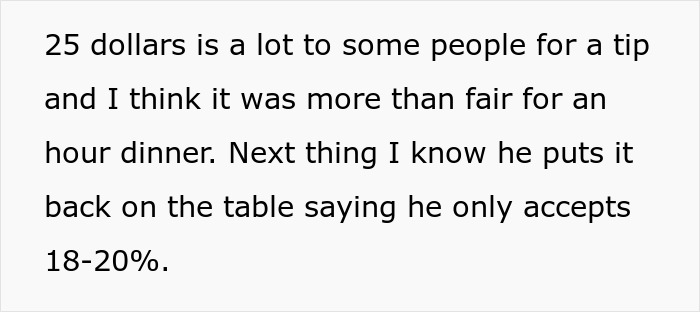
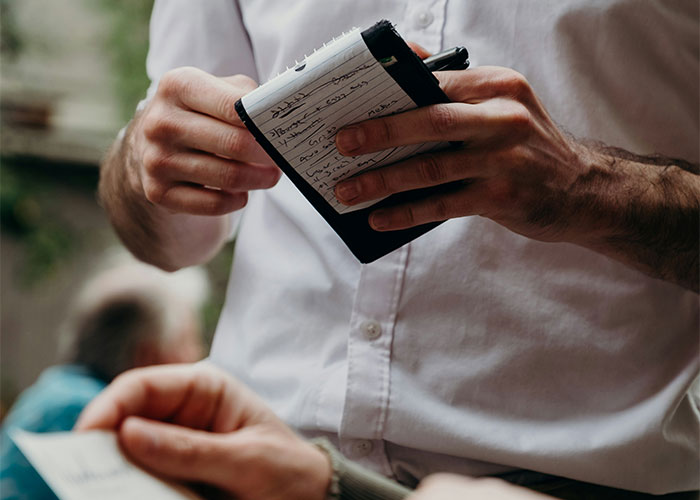
Image credits: Jessie McCall / unsplash (not the actual photo)

As the post went viral, its author acknowledged that the culture is very nuanced
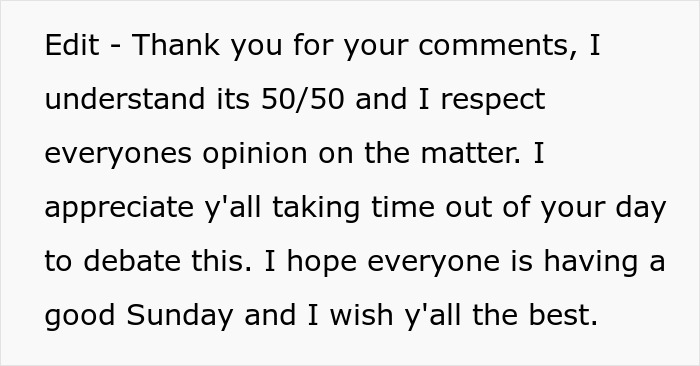
Image credits: Koiguy94
Six in ten Americans believe there’s at least one aspect in which the tipping culture is broken
A 2024 survey from Bankrate found that 59% of Americans view at least one aspect of tipping negatively, agreeing with the the following statements:
- 37 percent believe businesses should pay their employees better, rather than relying so much on tips;
- 35 percent believe that tipping culture has gotten out of control;
- 34 percent are annoyed about the pre-entered tip screens they encounter at coffee shops, food trucks and elsewhere;
- 14 percent would be willing to pay higher prices in order to do away with tipping;
- 11 percent are confused about who and how much to tip.
Older generations like baby boomers and Gen Xers have more negative attitudes about tipping—with 72% and 62%, respectively, having at least one negative view—than younger generations, like millennials and Gen Zers (51% and 45% of whom had at least one negative take).
The quality of service is still the biggest factor for the majority of tippers, the survey found, with 64% of people saying they size their gratuity according to it, while just 10% say they always tip the same amount, regardless of how good or bad the staff is.
Another problem is that “Customers are being asked to tip at the more traditional service encounters [and] also app-based services, ride-share and delivery apps. This gives the perception that tipping is everywhere, which does seem the case,” said Tim Self, an assistant professor of hospitality at Austin Peay State University in Clarksville, Tennessee.
“Ultimately, it comes down to the consumer making that choice and I think more people will get comfortable saying ‘no.’”

Image credits: Lala Azizli / unsplash (not the actual photo)
Many people were as appalled by the server’s behavior as the client



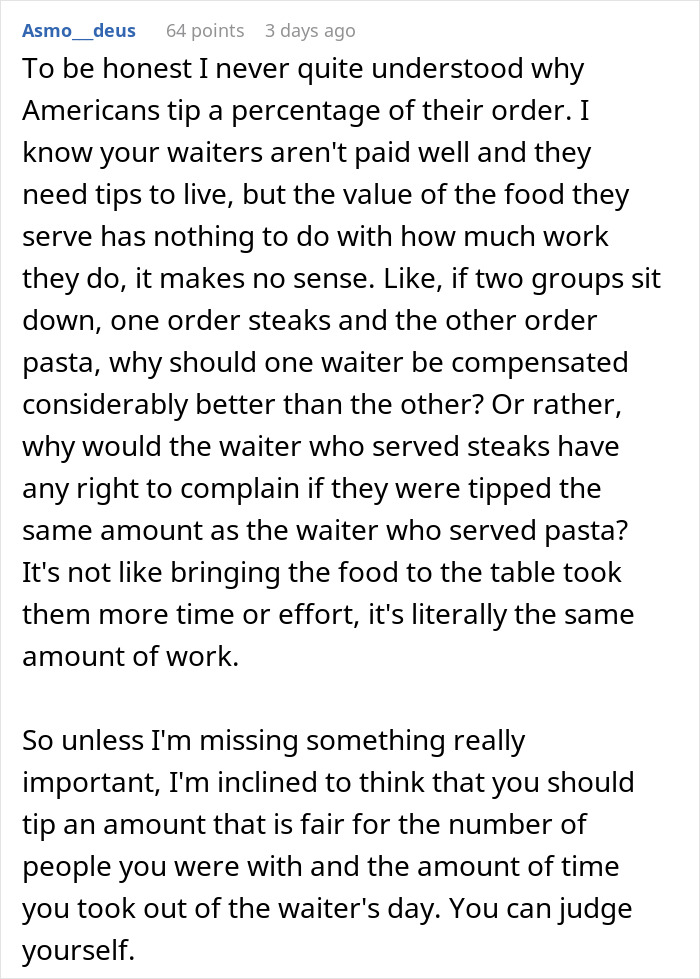



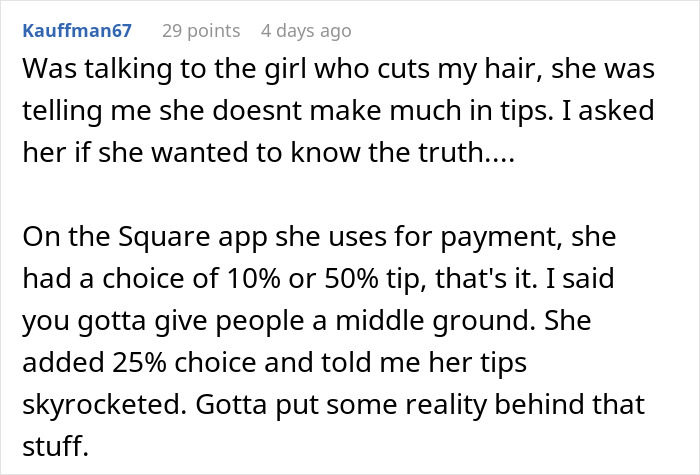

















But some didn’t agree with them
